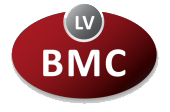Cancer Gene Therapy Group (A.Zajakina lab)
The Cancer Gene therapy group specializes in development of clinically translatable methods for cancer treatment based on gene therapy vectors and combination of different strategies including chemotherapy and immunotherapy. The group uses a wide variety of alphaviral vectors as promising candidates for transient intratumoral delivery of therapeutic genes. The group has generated a strong collaborative network with experts in complementary fields: chemists, bioinformatics, and physics. Currently, the group focuses on reprogramming of tumor microenvironment, using classical way through infection with recombinant virus carrying therapeutic genes (i) and alternative way through photoactive drug delivery by polyfunctional liposomes (ii). The group has a strong interest in unraveling fine mechanisms of alphavirus infection and identification of factors of tumor microenvironment for efficient targeting of cancer cells.

Anna Zajakina, PhD
Head of the scientific group, senior researcher
Personnel
Anna Zajakina, PhD, anna@biomed.lu.lv
Karīna Spunde, PhD, karina.spunde@biomed.lu.lv
Žanna Rudeviča, MSc. biol., zanna.rudevica@biomed.lu.lv
Ksenija Korotkaja, MSc.biol., ksenija.korotkaja@biomed.lu.lv
Dārija Lapiņa, darija.lapina@biomed.lu.lv
Areas for searching partners
- Cancer immunotherapy
- Vaccines
- Anti-microbial tests
10 the most representative publications for the scientific group
- Korotkaja, and A. Zajakina. Recombinant Virus Quantification Using Single-Cell Droplet Digital PCR: A Method for Infectious Titer Quantification. Viruses 2023, 15(5), 1060; https://doi.org/10.3390/v15051060
- Spunde K, Korotkaja K, Zajakina A. Recombinant Viral Vectors for Therapeutic Programming of Tumour Microenvironment: Advantages and Limitations. Biomedicines. 2022 Aug 31;10(9):2142. doi: 10.3390/biomedicines10092142.
- Spunde K, Vigante B, Dubova UN, Sipola A, Timofejeva I, Zajakina A, Jansons J, Plotniece A, Pajuste K, Sobolev A, Muhamadejev R, Jaudzems K, Duburs G, Kozlovska T. Design and Synthesis of Hepatitis B Virus (HBV) Capsid Assembly Modulators and Evaluation of Their Activity in Mammalian Cell Model. Pharmaceuticals. 2022 Jun 22;15(7):773. doi: 10.3390/ph15070773.
- Skudra, G. Revalde, A. Zajakina, L. Mezule, K. Spunde, T. Juhna, K. Rancane. UV inactivation of Semliki Forest virus and E. coli bacteria by alternative light sources. J Photochem Photobiol. Volume 10, June 2022, 100120. https://doi.org/10.1016/j.jpap.2022.100120
- Trofimova O, Korotkaja K, Skrastina D, Jansons J, Spunde K, Isaguliants M, and Zajakina A. Alphavirus-Driven Interferon Gamma (IFNg) Expression Inhibits Tumor Growth in Orthotopic 4T1 Breast Cancer Model. Vaccines 2021, 9(11), 1247; https://doi.org/10.3390/vaccines9111247
- Irbe, I. Filipova, M. Skute, A. Zajakina, K. Spunde, T. Juhna. Characterization of Novel Biopolymer Blend Mycocel from Plant Cellulose and Fungal Fibers. Polymers 2021, 13(7), 1086;
- Baiba Kurena, Elisabeth Müller, Panagiotis F Christopoulos, Ingvild Bjellmo Johnsen, Branislava Stankovic, Inger Øynebråten, Alexandre Corthay, Anna Zajakina. Generation and Functional in vitro analysis of Semliki Forest Virus Vectors Encoding TNF-α and IFN-γ. Front Immunol. 2017 Nov 30;8:1667. doi: 10.3389/fimmu.2017.01667
- Kurena B, Vežāne A, Skrastiņa D, Trofimova O, Zajakina A. Magnetic nanoparticles for efficient cell transduction with Semliki Forest virus. J Virol Methods. 2017 Jul;245:28-34. 2017.03.008. Epub 2017 Mar 15. doi: 10.1016/j.jviromet
- Zajakina Anna, Karina Spunde and Kenneth Lundstrom. Application of alphaviral vectors for immunomodulation in cancer therapy. Curr Pharm Des. 2017;23(32):4906-4932. doi: 10.2174/1381612823666170622094715
- Jelena Vasilevska, Gustavo Antonio De Souza, Maria Stensland, Dace Skrastina, Dmitry Zhulenvovs, Raimonds Paplausks, Baiba Kurena, Tatjana Kozlovska, Anna Zajakina. Comparative protein profiling of B16 mouse melanoma cells susceptible and non-susceptible to alphavirus infection: effect of the tumor microenvironment. Cancer Biol Ther. 2016 Aug 11:1-16. PMID: 27636533

